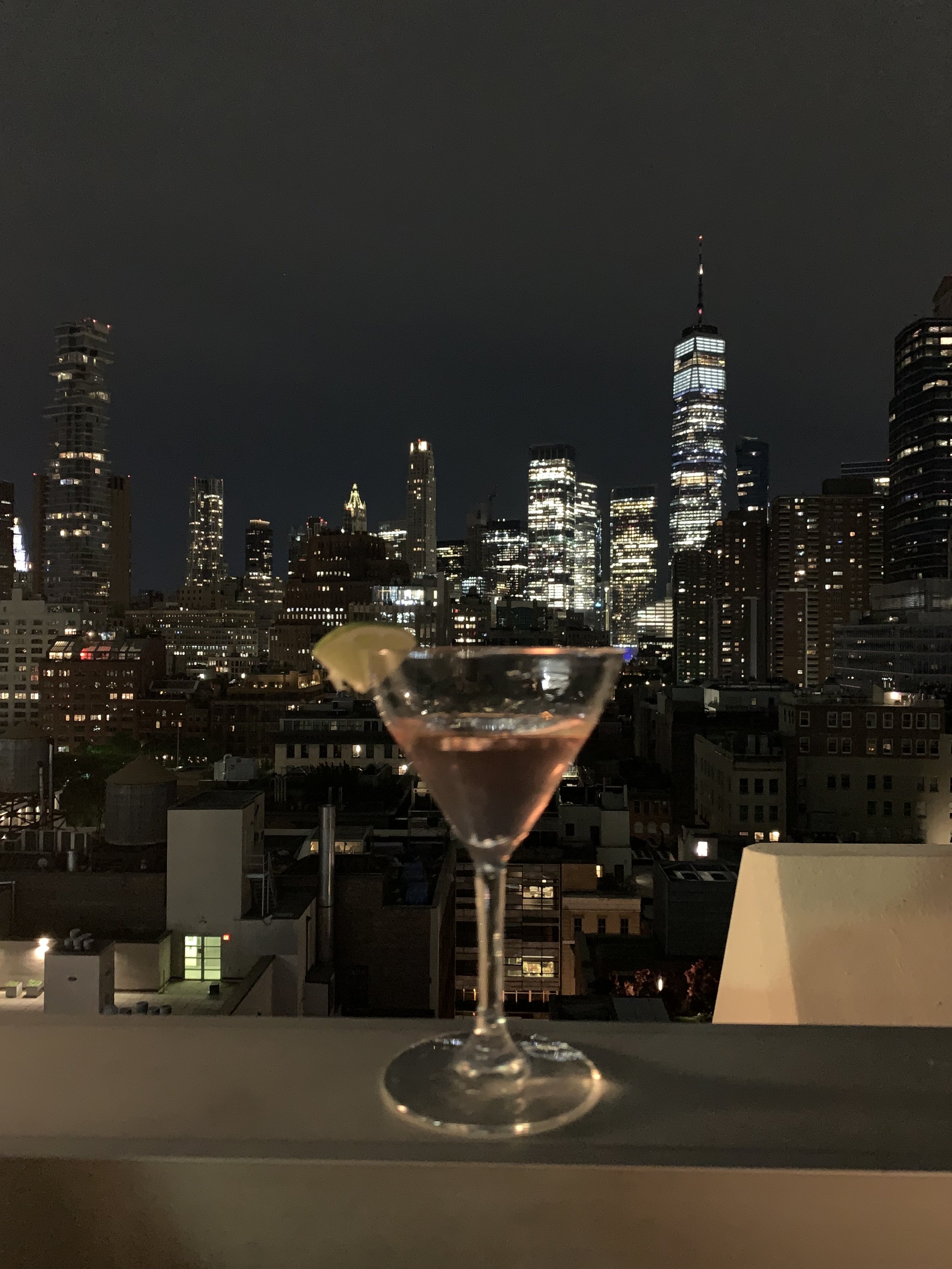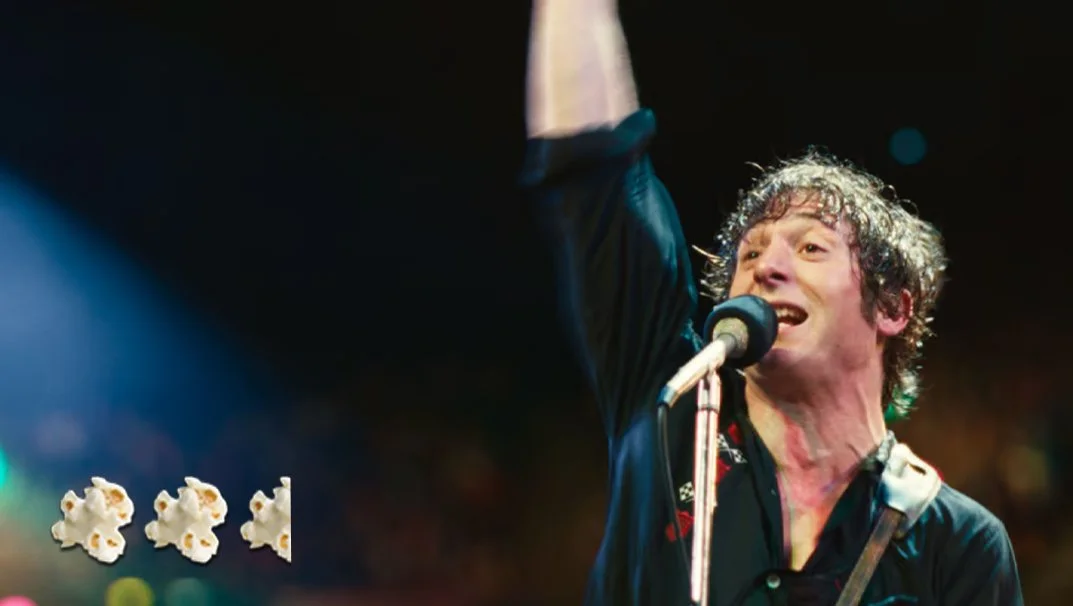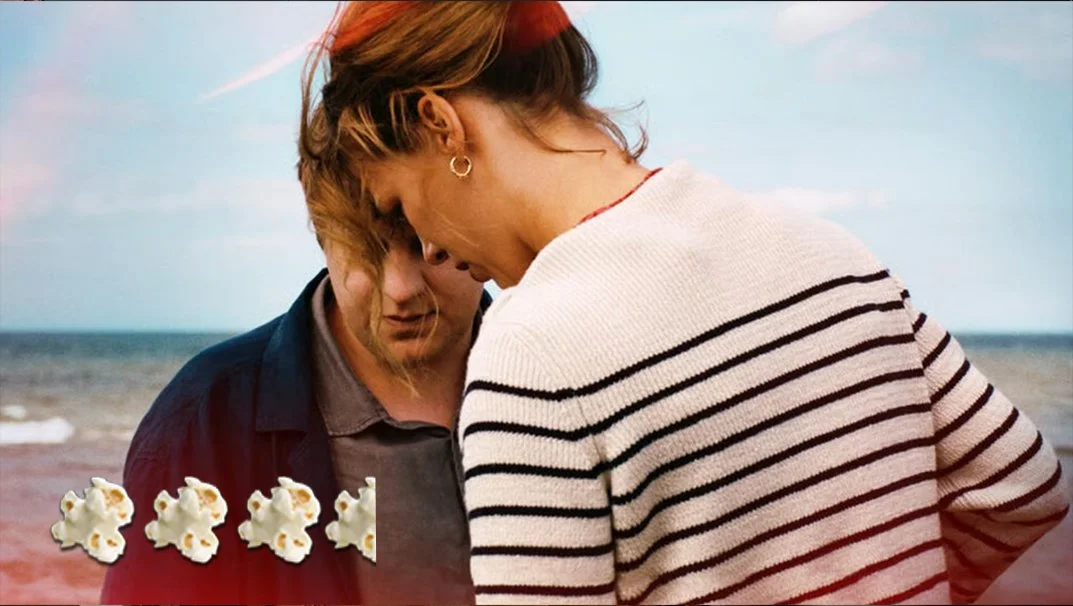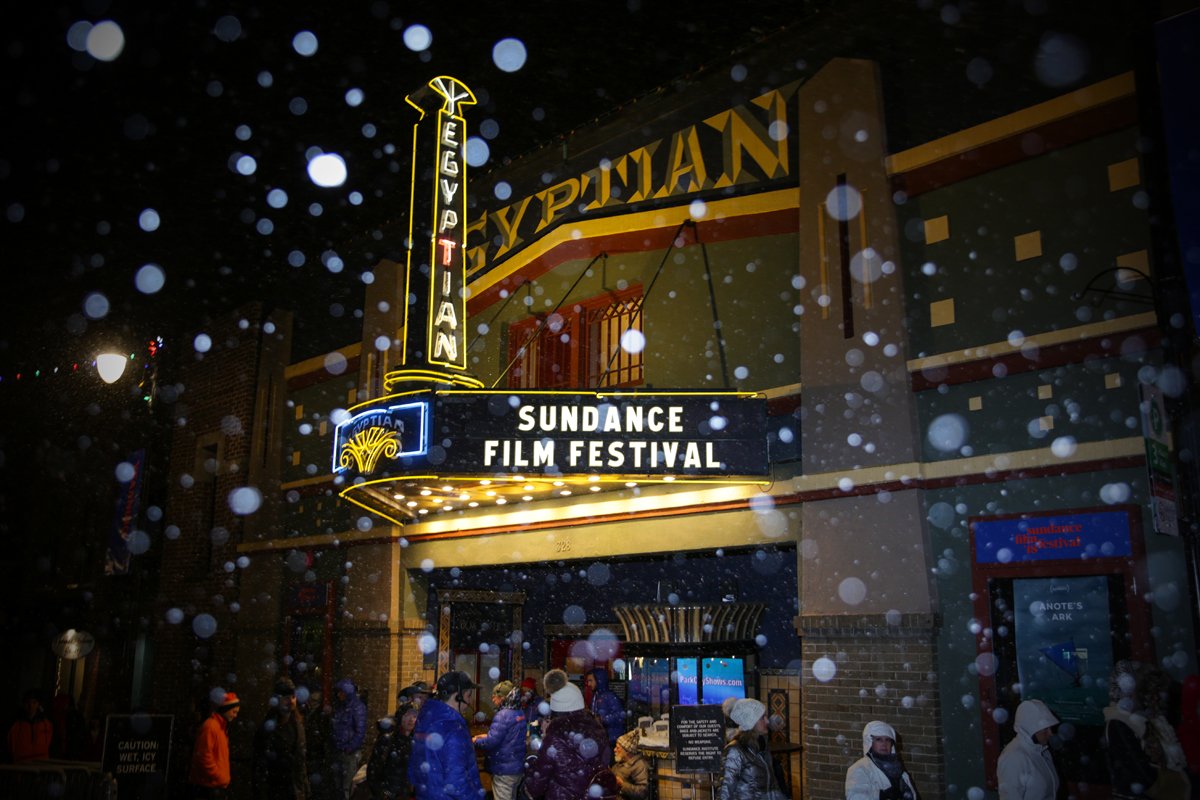
NYFF
REVIEWS
Inspired by Jean-Luc Godard’s 1960 game-changer, À Bout De Souffle (Breathless), Richard Linklater’s Nouvelle Vague (New Wave) turns creative nonfiction into an ode to first-time filmmaking. His take is both cautionary and empowering. Rather than go full film school, he delivers a comedy about film history legends with the same light touch that brought his own high school classmates to life. While Godard devotees may be Nouvelle Vague’s biggest fans, there’s a jaunty universality to this making-of tribute that will surely inspire new fans of the old wave. Or even inspire a new New Wave.
Sharply funny, achingly sad, Richard Linklater’s Blue Moon centers on aging lyricist Lorenz Hart, the brilliant but self-sabotaging half of Broadway’s Rogers and Hart. Like an extended last call for fading genius, the film unfolds during a boozy night at Sardi’s following the Oklahoma! premiere—Rodgers’ first hit without Hart—while Ethan Hawke-as-Hart gives one of his finest performances yet. Brash, tender, heartbreakingly human. Scripted by Me and Orson Welles author Robert Kaplow, Blue Moon captures the melancholy of artistic obsolescence with Linklater’s signature empathy—and pairs beautifully with the director’s ‘other’ NYFF premiere, Nouvelle Vague: the sunrise and sunset of creative life in two masterstrokes.
Scott Cooper’s Springsteen: Deliver Me From Nowhere is your standard, by-the-numbers music biopic. Almost everything you expect to happen, happens: daddy issues, writer’s block, neglected love interest, execs meddling with personal music…while Bruce’s innate depression is reduced to a title card. Performances by Jeremy Allen White and Jeremy Strong are convincing—but clichés can’t be elevated by acting alone.
A non-fiction narrative recounted primarily through police bodycam footage, The Perfect Neighbor speaks volumes. Produced and directed by the award-winning Geeta Gandbhir, it is both brilliant journalism and sensitive storytelling: a life-and-death drama, a tragedy born of neighborhood tensions—and a microcosm of our nation’s deepest cultural wounds. Even so, in spite of its horrors, this film is not without hope. Not the comforting kind, but the insistent conviction that we can do better.
A deeply upsetting, unexpectedly comic crime drama, Jafar Panahi’s It Was Just An Accident is both a cinematic achievement and an act of political defiance. Completed under immense personal risk, this enthralling Iranian film delivers politically-charged trauma via clandestine filmmaking. The result is one of the most daring and unforgettable films his entire oeuvre … with questions that linger long after.
Intriguing, but uneven. Luca Guadagnino’s campus-set caper After the Hunt is lost in a gumbo of delicious ingredients that never quite coalesce. Julia Roberts shines as Alma, a fictional Yale professor forced to confront her past when a sexual assault accusation erupts between her colleague (tox-masc Andrew Garfield) and student (sanctimonious Ayo Edibiri). For a film obsessed with identity politics, After the Hunt’s own sense of self feels unresolved: individual elements work, but—like best friends in study hall—lose focus side-by-side. Think diet Tár.
Christian Petzold’s Miroirs No. 3 is a breezy, pleasant watch that may disappoint fans of his edgier work. Not much happens, which isn’t a negative: Petzold is best at subtle exchanges. Convincingly eccentric characters, unhurried pacing and country bike rides give Miroirs a languorous, cozy feeling--—and despite occasional flaws, the end result is worth our while: an intimate exploration of trauma…and our efforts to fill the void.
NYFF
INTERVIEWS
Told through a triptych of three disconnected families, Jim Jarmusch’s Father Mother Sister Brother is a minimalistic meditation on attempted reconciliation—between relatives and within the self. Writer/Director Jarmusch and his longtime collaborator, Producer Carter Logan achieve this luminous effect through a nearly invisible, yet masterful sense of control. Is it possible to control a work of art that is by nature—and intent—an enigma? According to Logan, the familial interactions they explore onscreen are direct analogues to his creative process with Jarmusch.

TRIBECA
INTERVIEWS
Filmmaker Kyle Vorbach spent the past year living his dreams: he moved to LA; published a book; produced a podcast; released a solo album; put on an art show; presented a Ted Talk; was interviewed on TV and more. Thing is, he faked it all. Hence the title of his uproarious social-experiment-turned-documentary: How I Faked My Life with AI.
However: knowing the ‘how’ only raises more questions.
Were Vorbach’s dreams ever real to begin with? Is his life better or worse thanks to AI? Or, better yet, forget Vorbach. What should WE do with this life-changing tech?
At Tribeca Festival 2024, one programming “first” drew unprecedented attention: the “Sora Shorts” showcase, featuring five original short films all produced using OpenAI’s text-to-video AI model, aka Sora.
Why does this matter?
Storytelling as we know it may never be the same.
Natalie Metzger, Spirit Award-nominated producer and Vanishing Angle’s VP of Development and Production, is a name to watch—that is, if you aren’t watching already. Known for producing festival favorites like Thunder Road (2018) and Greener Grass (2019), Metzger—and Vanishing Angle—are staples on the indie circuit, returning to major fests every year with exciting new projects.
REVIEWS
A welcome relief from the cacophony of guns and superheroes, Christian Petzold’s smoldering drama Afire—which won a Silver Bear Grand Jury Prize at Berlinale in 2023—offers a quieter slice-of-life. The film’s unlikable protagonist, Leon (a pitch-perfect Thomas Schubert), is a deeply insecure writer who shields himself with pomposity. His posturing is foiled by Nadja (the cheery yet inscrutable Paula Beer), who is patient well past the point of reason. While sharing a Baltic vacation home with two other friends, Leon struggles to get writing done—let alone get along with the rest of the group.

SUNDANCE
REVIEWS
A non-fiction narrative recounted primarily through police bodycam footage, The Perfect Neighbor speaks volumes. Produced and directed by the award-winning Geeta Gandbhir, it is both brilliant journalism and sensitive storytelling: a life-and-death drama, a tragedy born of neighborhood tensions—and a microcosm of our nation’s deepest cultural wounds. Even so, in spite of its horrors, this film is not without hope. Not the comforting kind, but the insistent conviction that we can do better.
I Saw the TV Glow is a cult film-in-the-making. A second turn at Sundance for writer/director Jane Schoenbrun (they/them), this haunting sophomore feature channels the voice of a generation: a voice dripping in Nickelodeon slime, Twin Peaks scores and creepypasta lore. A voice that demands to be taken seriously, even when its main villain is literally a Georges Méliès-style moon named Mr. Melancholy.
Rose Glass’s Love Lies Bleeding is a gleefully deranged, exceptionally-crafted, pitch-dark pulp-drama. This genre-bender—a Tarantino-esque concoction of crime, noir, romance, body horror, western, black comedy, and above all, mood—marks Glass as a must-watch talent. (It also makes a serious case for the return of mullets.)
My personal Top Ten films from Sundance 2024—plus distribution info, so that you too can catch these buzzy treasures in the coming year. Selected from a vast number of candidates (roughly 17,000 submissions), this year’s cadre of Sundance premieres delivers profound insights into our own collective evolution. These stories are pure entertainment, genre films with a conscience, Trojan Horses for cultural progress.
Elijah Bynum’s Magazine Dreams is an intense, deeply unsettling psychological thriller, superbly anchored by Jonathan Major’s performance as manic-muscleman Killian Maddox.
Sundance is expensive. If you can allot the time and money to go, you’ll want to make the most of your experience. So here’s how to make the experience even more worth your while.
OFF-SCRIPT
INTERVIEWS
Rising star Sean Wang has written and directed a very real, very raw account of boyhood through the eyes of Chris “Wang-Wang,” captured by an equally believable and joyous young actor Izaac Wang. Didi refreshes the coming-of-age-genre on multiple levels. It’s specific in time, place and culture, yet remains universal. It’s painfully honest, and therefore more fully human. It shares details that we don’t often see.
Filmmaker Edson Oda lights up when he’s talking Magic. Not the Magical Realism of his award-winning first feature, Nine Days. Not the sleight-of-hand in a twelve-year-old’s parlor tricks. Instead, he’s discussing the addictively competitive trading card game, Magic: The Gathering.
In collaboration with lead actors Mia Maestro and Leonor Varela, Chilean writer/director Francisca Alegria paints a visually rich, emotionally layered fable about motherhood—where two troubled humans symbolize Mother Earth and the threats posed by our species. In UK and Irish theaters March 24th.

SXSW
INTERVIEWS
Story Ave—described by writer/director Aristotle Torres as a “Film by the Bronx”—premiered as part of SXSW’s Narrative Feature Competition and won two awards. Painterly, poignant, this impressive first feature surprises despite its depiction of predictable hardship ... and reminds us to look in instead of away.

























Josh Safdie’s Marty Supreme is a madcap sports-crime thriller: Uncut Gems plus Catch Me If You Can sandwiched between Balls of Fury (if only that escapade were actually good). A spiritual sibling to the Safdie brothers’ signature chaos, this exhilarating opus celebrates immaturity with a more mature—well, less restrained—big-balled confidence. Factor in Timothée Chalamet's funniest performance to date, the pulsing 80's score and breathtaking game points… We’ve got a winner.